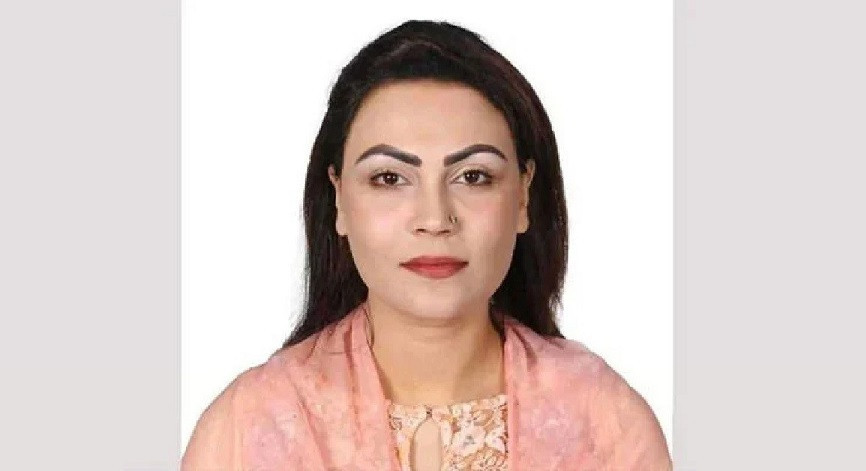
On 13 November, the country witnessed several key events that may prove crucial in shaping the future political trajectory of Bangladesh.
In the morning, the International Crimes Tribunal announced the date for the first verdict on the July-August 2024 massacre.
The tribunal will deliver its verdict on 17 November in a case involving ousted Prime Minister Sheikh Hasina, former Home Minister Asaduzzaman Khan Kamal, and former police chief Chowdhury Abdullah Al Mamun – who is also a state witness.
The verdict date was set by the three-member bench of International Crimes Tribunal-1, led by Justice Md Golam Mortuza Majumdar, with Md Shafiul Alam Mahmood and Md Mohitul Haque Enam Chowdhury as the other members.
In this highly publicised case, the prosecution has demanded the death penalty for both Sheikh Hasina and Asaduzzaman Khan Kamal, charging them with five counts of crimes related to the massacre.
On the same day, another major judicial decision occurred. The Appellate Division granted leave to appeal the High Court’s decision on the 15th Amendment to the constitution. Chief Justice Syed Refaat Ahmed led a six-judge bench in making this ruling.
The second-day hearing on the leave to appeal focused on the High Court’s ruling regarding the 15th Constitutional Amendment, which altered several constitutional provisions, including abolishing the caretaker government system.
The amendment, passed by Parliament and approved by the President on 3 July 2011, also officially recognised Bangabandhu Sheikh Mujibur Rahman as the Father of the Nation.
The amendment increased reserved seats for women in Parliament from 45 to 50, reaffirmed religious freedom, and reinforced nationalism, socialism, democracy, and secularism as guiding state principles.
It introduced provisions for punishing the illegal occupation of state power as an act of treason, potentially with the highest penalty. Additionally, it revised the election timeline, stipulating that elections must now be held within 90 days before a term’s expiration, rather than 90 days after its conclusion.
Also on 13 November, the Election Commission began formal dialogues with political parties in preparation for the upcoming national parliamentary elections.
The Chief Election Commissioner led the first round of talks with 12 political parties, with more parties expected in subsequent rounds, marking the official start of the electoral process.
Meanwhile, the Awami League conducted a nationwide lockdown programme, creating widespread fear and anxiety through acts of sabotage and violence.
Reports included cocktail explosions and arson in scattered locations, further escalating tensions.
However, the most significant event of the day was the address by Chief Adviser Prof Yunus to the nation.
Amid political divisions over implementing the July Charter and holding a referendum, the chief adviser officially declared the charter’s implementation.
Though these events may seem disconnected, they are deeply interrelated. Taken together, they indicate the direction Bangladesh’s future may take.
If the political parties involved in the July Revolution remain united, the country can advance towards democracy and peace.
If, however, the parties remain divided, authoritarianism could return, leading to instability and violence. The future of Bangladesh depends on how political parties respond to the chief adviser’s proposals.
In his address, the chief adviser presented a neutral and logical solution to the political crisis. He refrained from taking sides, reflecting the hopes of the people.
On the contentious issue of the referendum, he gave citizens the freedom to decide on the July Charter through four specific questions, respecting the demands of all political parties while keeping the path open for the people’s wishes to guide the decision-making process.
The questions are:
(a) Should a caretaker government, Election Commission, and other constitutional institutions be formed in line with the process described in the July Charter?
(b) Should the upcoming Parliament be bicameral, with a 100-member upper house that will approve constitutional amendments?
(c) Should the 30 agreements made in the July Charter regarding gender representation, the deputy speaker from the opposition, limiting the Prime Minister’s tenure, expanding basic rights, judicial independence, and local government reforms be implemented by the winning party in the next election?
(d) Should all other reforms mentioned in the July Charter be implemented according to the political parties’ pledges?
On referendum day, citizens will cast “Yes” or “No” votes on these four issues. The chief adviser did not impose any decisions; he ensured that the 30 constitutional amendments agreed upon by all parties would be implemented regardless of which party wins.
Any disagreements will be resolved according to party pledges. For instance, if the BNP wins, it must implement the 30 agreed amendments without objection; the same applies to Jamaat or the NCP, with other issues determined by their pledges. This approach represents a fair solution.
Any political party opposing this decision would signal that it is not committed to elections or democracy and seeks to create instability.
In such a scenario, no one benefits, and the defeated forces of July 2024 could return.
Therefore, there is hope that political parties will abandon threats and violence and embrace the electoral process.
The events of 13 November, along with the chief adviser’s address, send a clear message: Unity is victory, division is decay.
Audite Karim is a writer and playwright. Email: [email protected]

